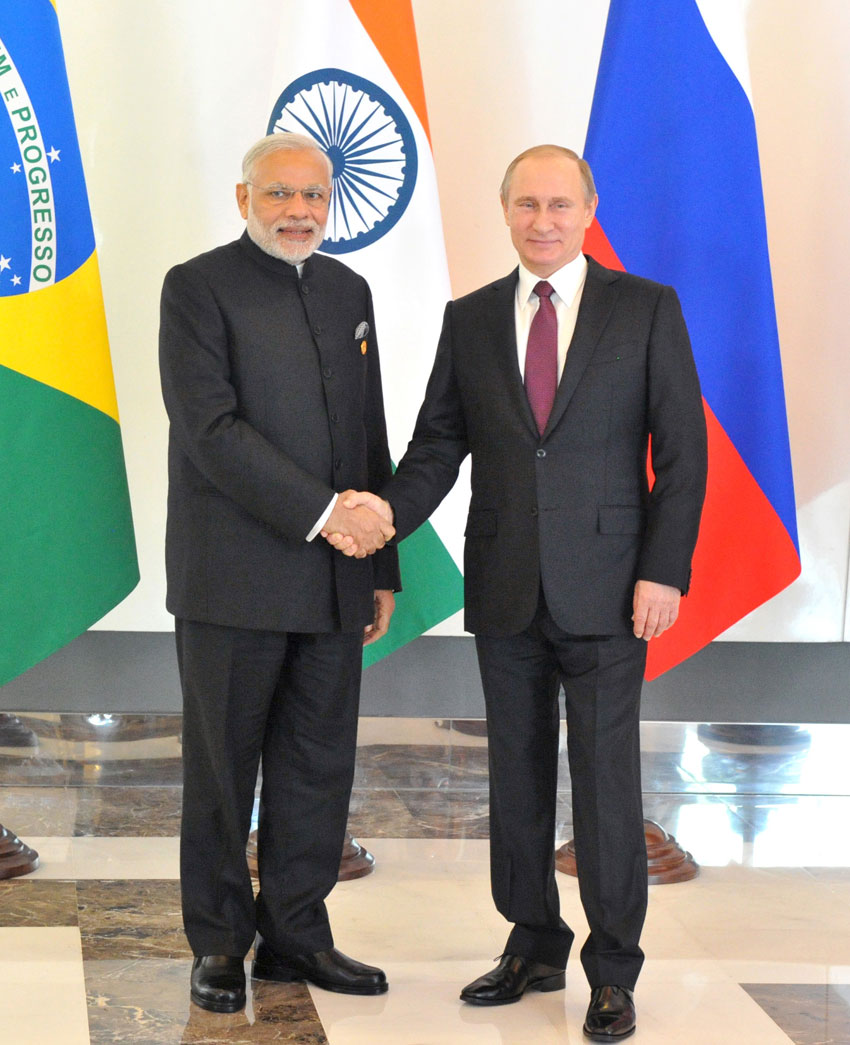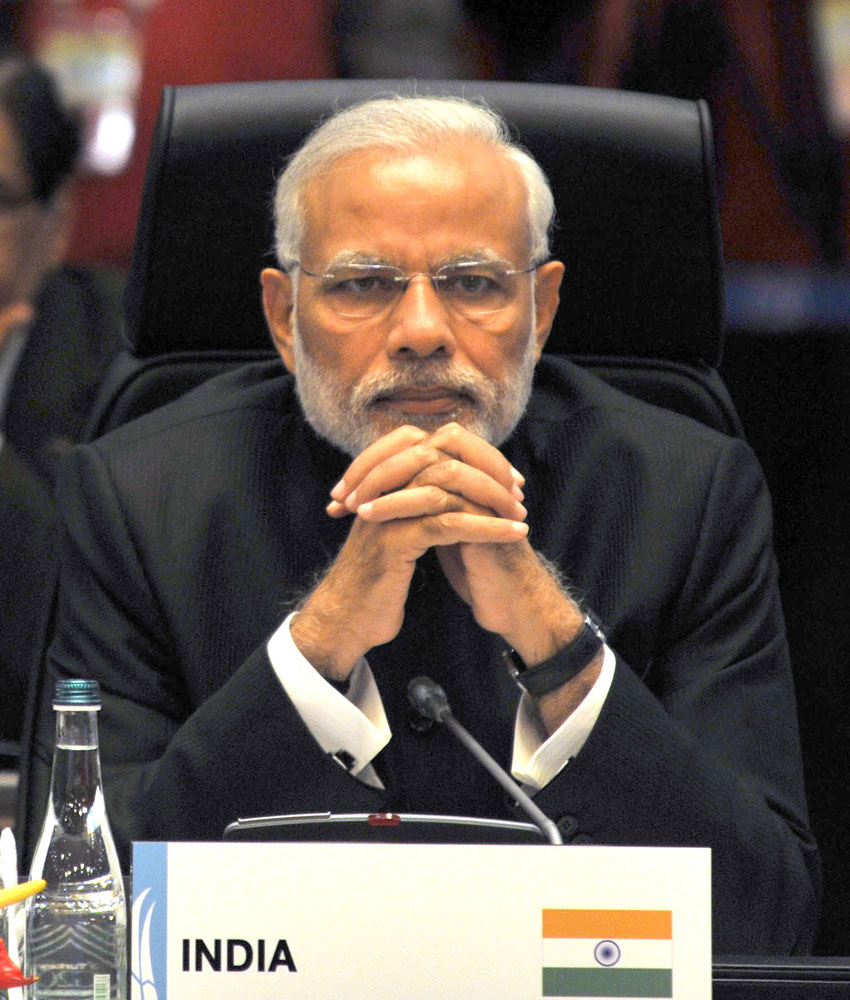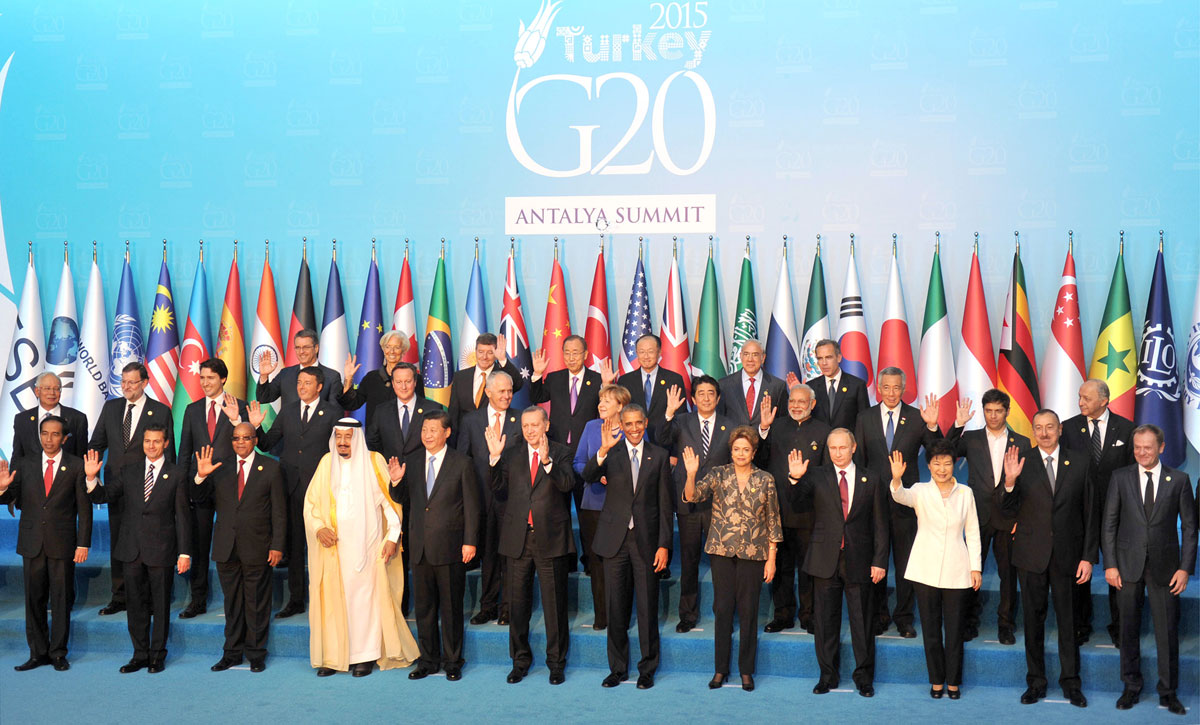THE G20 SUMMIT
Prime Minister Narendra Modi with other leaders in the G-20 family photograph, at the G20 Turkey 2015, in Antalya, Turkey, Nov. 15. (Press Information Bureau)
Though focus at the G20 summit rightly shifted due to the brazen Paris terror attacks, it does go to the credit of Prime Minister Narendra Modi that he managed to draw attention of assembled world leaders towards subjects he has been intensely pursuing over the past few years and are now being taken forward by his government, writes Siddharth Srivastava. (#G20Turkey2015, @narendramodi, #siliconeer, @siliconeer)
Prime Minister Modi spoke about the dangers of climate change and need for richer nations to do their bit to enable poorer countries to take up the challenge. In a way, courtesy the efforts of India, the G20 summit set the tone for the Conference of Parties (COP) in Paris from Nov. 30 to Dec. 11, under aegis of United Nations Framework Convention on Climate Change.
The G20 comprises top industrialized nations: Argentina, Australia, Britain, Brazil, Canada, China, France, Germany, Indonesia, Italy, Japan, Mexico, Russia, Saudi Arabia, South Africa, South Korea, USA, European Union, Turkey and India.
Speaking at the G20 summit in Antalya, Turkey, Modi urged the member countries to ensure finances and technology worth $100 billion be made available to pursue clean energy projects.

“At G20, we can play an effective role in supporting the multilateral goals of increasing research and development to develop affordable renewable energy. We must also ensure finance and technology is available to meet the universal global aspiration for clean energy. We must meet the target of U.S. $100-billion goal per year by 2020,” Modi said. “We should shift from ‘carbon credit’ towards ‘green credit.’ When we speak of targets, we must not only reduce the use of fossil fuel, but also moderate our lifestyle. Development in harmony with nature is the goal of my proposal to launch, along with French President Hollande, an alliance of solar-rich countries at the time of COP-21 meeting,” he added.
Over the recent past many have criticized the BJP’s campaign during the recently concluded elections in Bihar, that tried to polarize voters along communal lines. The top duo of Modi and BJP President Amit Shah have been blamed for backing the divisive strategy and not reining hardline Hindutva oddball leaders who repeatedly shoot their mouth on sensitive matters.
In an attempt to defend his government that has also been accused of fuelling an atmosphere of intolerance that has lead to violent incidents, especially against the minority Muslim community in the country, Modi stressed the importance of delinking terror from religion and called for coordinated action against radicalization.
“The world must speak in one voice and act in unison against terrorism, without any political considerations. There should be no distinction between terrorist groups or discrimination between states,” he said. Yet, question marks do remain whether the BJP will tone down its future election campaigns that lean on arousing aggressive Hindu nationalism rather than focusing on a growth and development promise. The BJP’s defeat in the Bihar and earlier Delhi, should be a cause for some deep introspection.
There is no doubt, however, that Modi’s out-of-the box ideas about pushing clean energy as an instrument to fight climate change is earning him plaudits that is well-deserved. Espousing such a cause is helping Modi gain in stature as a global leader trying to make a real difference to the lives of poor populations in middle and low-income countries. In this context, Modi urged member nations of the G20 to back his Grand Solar Alliance, a forum of world’s sun-rich countries that aim to rely on solar to revamp their energy infrastructure. Modi’s Grand Solar Alliance plan proposes to create an International Agency for Solar Technologies and Applications (INSTA) to bring together 125 countries abundant in sunlight located between tropics of Cancer and Capricorn, notably from Africa and Asia, to pursue the renewable energy resource, given the sharp dip in generation cost. Modi has previously said investments of $100 billion annually are needed for the Alliance to successfully implement its agenda. New Delhi is looking to set India firmly on the path of green and sustainable growth.

The country is targeting 175 GW of new renewable capacity by 2022, cut subsidies on fossil fuels, tax use of coal, and set up a National Clean Energy Fund of $3 billion to promote clean technologies. Companies looking to set up solar plants in India have been buoyed by support of the Indian government in extending cheap loans, quick regulatory approval, single window clearance and most importantly buying land. A steep fall in the cost of producing solar power is also helping their cause.
India has pledged to cut emission levels by 33-35% over next 15-years ahead of Paris talks. Modi has linked India’s renewable focus and a move away from fossil fuels to fighting climate change and achieving desired emission levels, instead of directly clamping down on industry that could hinder growth.


